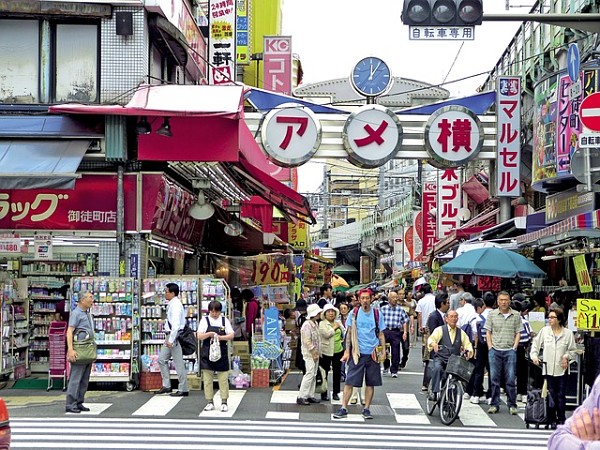
Shares in Japan steamed ahead on Monday as investors lapped up weathered financial stocks, and the Japanese yen continued an easing back seen over the weekend.
- 836,507
- -0,42%
- 2.075,000₹
- 0,00%
- 0,000$
- 0,00%
- 681,300p
- 0,40%
- 38.981,750
- 0,18%
- -
- -
- -
- -
The Nikkei Stock Average closed up 7.16% - its biggest gain since September 2015 - at 16,022.58. It was a reversal from last week's 11% loss, which was its biggest weekly drop since October 2008.
Its close on Friday was also the lowest level since October 2014.
Japan's safe haven yen also weakened back against the US dollar, providing some relief to the island nation's wide export economy. The yen had reached as high as 110.98 to the dollar last week, but it was last trading at JPY 113.94, easing back 0.61%.
In currencies, the renminbi helped the positive mood in the region after Beijing guided it higher early in the day, leading to its strongest level so far this year. It was fixed at CNY 6.5518 to the USD, and traded as high at 6.4988 against the greenback.
The onshore yuan is allowed to trade up to 2% above or below its loose peg.
Australia's dollar was last 0.62% stronger than its American namesake, at AUD 1.3984 per USD, and the Kiwi was 0.6% stronger at NZD 1.4995.
There was still uncertainty among analysts as to whether the global markets had bottomed out in their current trough, though some buoyancy remained in the market after the weekend with US retail sales higher than expected on Friday and oil prices and New York stocks recovering slightly.
Brent crude was last up 0.57% to $33.55 per barrel, while West Texas Intermediate was up 1.14% to $29.78.
Japanese government bonds - another popular option for investors seeking safe harbour - declined on Monday as the recovery in equities hastened. The benchmark 10 year yield was up 0.015 percentage points to 0.090% - the yields move inversely to prices.
Tokyo also reported a contraction in GDP in the fourth quarter, by 1.4%.
Bargain hunting was another theme for Monday in Tokyo, with investors targeting insurers and brokers specifically. MS&AD Insurance Group rose 13% and Nomura leapt 11%.
Banks on the country's Topix index collectively gained 8.7%, providing some cheer to a battered industry that had already lost 32.1% since the start of 2016.
Across on the mainland, Chinese shares came off their week-long Lunar New Year break to slip slightly. The Shanghai Composite Index closed down 0.63% to 2,746.20, though it had fallen as low as 3% during the session.
A raft of weak economic data from Beijing hadn't deterred investors from buying. The authorities reported a 6.6% fall in Chinese exports in January over the previous year, in yuan terms, which was a sharp decline from December's 2.3% increase.
Imports fell 14.4% in January from a year ago as well.
In Hong Kong, the Hang Seng Index was up 3.27%, due partly to a 4.6% rise locally in HSBC Holdings after the bank confirmed it would keep its headquarters in London. The bank is worth 10% of the benchmark.
Seoul's Kospi rose 1.47%, while Sydney's S&P/ASX 200 gained 1.64%, led in part by the recovery in oil prices.
All four of Australia's big banks rebounded after suffering a dismal five days last week. Commonwealth Bank of Australia was up 1.3%, Westpac Banking Corporation up 2%, Australia and New Zealand Banking Group was up 3%, and the National Australia Bank soared 2.5%.
In Wellington, the S&P/NZX 50 advanced 1.7%. It was led by Nuplex, which rocketed 30% to an eight-year high, after an early announcement that Allnex Belgium wanted to buy the company via a scheme of arrangement at a 44% premium.
The deal would create one of the world's largest manufactureres of coating resins. It offered NZD 5.55 a share for Nuplex, valuing the target at NZD 1.05bn.

